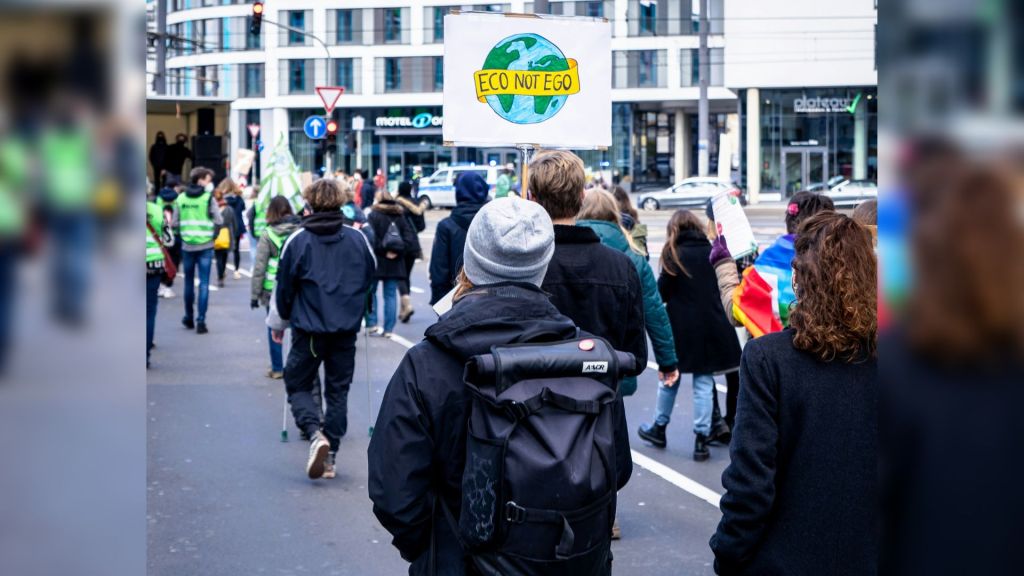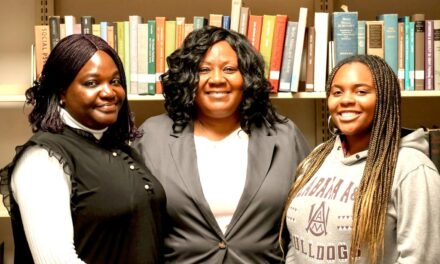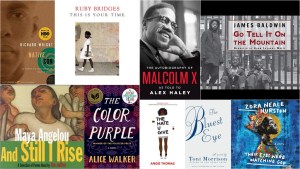By Mackenzie Williams
AFRO Intern
mwilliams@afro.com
According to the 2024 Deloitte Gen Z and Millennial Survey, “environmental sustainability remains a top concern for Gen Zs and millennials, with 62 percent of Gen Zs and 59 percent of millennials reporting feeling anxious or worried about climate change in the last month.”

Credit: Unsplash
The American Psychological Association defined the term “eco-anxiety” in 2017, describing it as a chronic fear of environmental doom. In light of July being Minority Mental Health Month, The AFRO spoke with some experts of the repercussions of how Black youth are affected by eco-anxiety.
“As far as I know very few people are planning for the climate future and really thinking about the impact on schools and students,” Erin Seaton, school psychologist at Tufts University and researcher on the intersection between climate change and education told the AFRO.
According to Education Week’s research center,” Only 30 percent of district leaders and principals who answered a nationally representative EdWeek Research Center survey said their districts have a facilities plan that takes climate change into account.”
Who is affected?
According to the Eco America 2023 report, adolescents and young people are more likely to “experience the mental health effects of extreme weather, high temperatures and the chronic and indirect impacts of climate change.”
Eco America, also highlights communities of color due to historic racial housing and redlining that indeed, “ For example, formerly red-lined neighborhoods in the United States tend to have less tree cover, less green space and more concrete, changes in place attachment, culture, food security and cultural practices.”
To expand the conversation around race and climate change, Seaton refers to the AFRO, a 2017 study conducted at Harvard University confirming that students underperform when their school is significantly hotter.
“Taking an exam on a 90 degree day relative to a 72 degree Fahrenheit day results in a reduction in exam performance that is equivalent to a quarter of the Black-White achievement gap, and meaningfully affects longer-run educational outcomes as well, leading to a 12.3 percent higher likelihood of failing a subject exam and a 2.5 percent lower likelihood of on-time high school graduation.”
In the conversation of climate change, those schools that are hotter sit on heat islands, and are filled with Black and Brown children as a result of historic racial redlining.
Heat islands
According to the Environmental Protection Agency, they found low-income communities that are predominately Black, “ have neighborhoods with higher temperatures relative to adjacent neighborhoods in the same city. The studies identify historic redlining as a contributing factor.”
The agency finds that because of redlining—a now barred practice of the 1930s to segregate Black people— it has a historic connection to present day predominantly Black cities such as Baltimore, Dallas and Kansas City.
“The study found that in all three cities, past redlined areas have lower vegetative cover, higher temperatures and greater proportions of residents with lower incomes than other areas of the cities. In addition, formerly redlined districts of all three cities had higher percentages of residents that were Hispanic, Black or both.”
Why should you care?
“The fear around eco anxiety feels a lot bigger because it’s not like you’re anxious about a test,” said Eaton.
According to Climate for Health, health professionals are tasked with lessening the anomaly of eco anxiety amongst youth, because it can lead to “pose or amplify risk factors for mental health disorders.
Climate for Health reports professionals are dedicated to developing, “climate-focused interventions for individuals and communities alike who are faced with impacts of climate change.”
Experts encourage not only social workers getting on board, but also including social services and other local mental health practitioners to build a sense of community when easing youth away from eco anxiety, as a way to not only address environmental change, but the risk factors in mental health that are associated with it.
“Schools are a starting place,” Eaton says, urging that climate injustice be talked about in schools as a way to give Black youth a sense of control over their emotions and mental health around society.
The post Beyond green: The intersection of eco anxiety and Black youth appeared first on AFRO American Newspapers.











